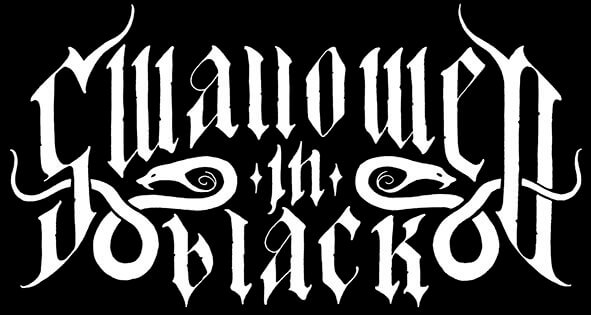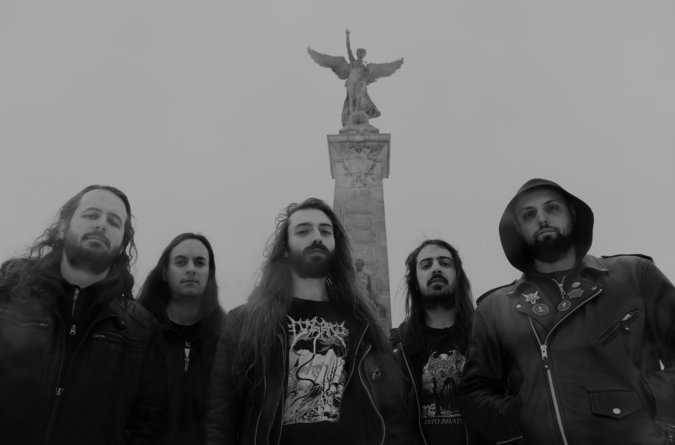“WE MUST EVENTUALLY ACCEPT THAT NOTHING IS MEANT TO LAST FOREVER, AS MUCH AS IT TERRIFIES US TO OUR CORE AND WOUNDS US DEEP WITHIN OUR SOULS” – ATRAMENTUS
Depicting utter despondency, desolation and dejection, Atramentus’ harrowing debut full-length, ‘Stygian’, is a devastating descent to the deepest depths of despair. Exacerbating unbearable physical pain and mental anguish, the immortal central character also suffers soul-destroying, spirit-annihilating regret, remorse, guilt, grief and alienation. I asked guitarist / vocalist Philippe Tougas whether the endless agony endured by The Guardian of Atros Kairn across the frozen, frigid plains suggests that life can sometimes constitute a fate worse than death.
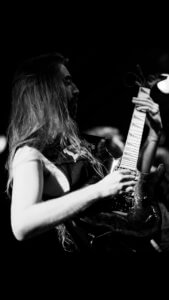 ‘Stygian’ is almost-unbearably bleak and oppressive as the protagonist is crushed by the intolerable weight of a debilitating cocktail of negative emotions – loneliness, isolation, longing, regret, sorrow, mourning – before just for good measure being inflicted with excruciating physical pain as well. It’s harrowing stuff; a journey to a bottomless well of absolute, all-consuming misery where no hope can be found. To what extent does this sense of hopelessness and anguish reflect your own view of life / death and the plight of humanity in general?
‘Stygian’ is almost-unbearably bleak and oppressive as the protagonist is crushed by the intolerable weight of a debilitating cocktail of negative emotions – loneliness, isolation, longing, regret, sorrow, mourning – before just for good measure being inflicted with excruciating physical pain as well. It’s harrowing stuff; a journey to a bottomless well of absolute, all-consuming misery where no hope can be found. To what extent does this sense of hopelessness and anguish reflect your own view of life / death and the plight of humanity in general?
“The concept behind ‘Stygian’ was born out of my own memories as I remembered one night when I walked through an endless snowstorm in the most unforgivingly cold temperature you can think of. It was on that same night the band was born and the band’s first song ‘Perennial Voyage’ was written. In later times, I thought to myself ‘I wonder how it would feel like to walk for an eternity like this. I wonder how such a bleak story would unfold’ and then I remembered how I felt during that same time, both mentally and physically and the concept was built from this one thought. The music came before the concept obviously, as it was all composed eight years ago. The way I built the concept around my own experiences, traumas, encounters, memories and dreams was to make others feel like how I felt during these times I wrote the music, albeit in a more abstract way and through the eyes and ears of a nameless character. The cold, the terror, the hopelessness and the heartache felt throughout the record all come from these thoughts materialized through music and storytelling.”
The sombre tone, the vast emptiness and the subject of a man suffering utter isolation reminds me somewhat of My Dying Bride’s album ‘The Light At The End Of The World’, where the main character is consigned to upkeep a lighthouse at the edge of the world in return for one more night with his beloved. Are you familiar with that album and can you see any similarities to the fate suffered by both characters?
“I am not familiar with that album at all, but I am listening to it for the first time as I am typing this. It sounds like quite a trip. In fact, this may seem almost heretical for many to read this (and rightfully so!), but I did not spend much time listening to the Peaceville ‘big three’, though I do really like the early Anathema demos / EPs. It is interesting that you have made a comparison to My Dying Bride, though. It seems like they have put together a very poignant concept with the album you have just mentioned and I’m definitely honoured to have Atramentus compared to them to any degree, even though I am not that familiar with all of their work. Some UK bands we are big fans of are obviously Solstice and Esoteric amongst countless others. However, the sound of Atramentus is actually mostly based on the bands that appeared in the wake of the Peaceville big three, inside the European and American scenes – Funeral, Skepticism, Worship, Thergothon, Unholy, Morgion, Colosseum, Tyranny, Ceremonium, Evoken, Pantheist, etc. The frozen Black Metal touch on the songs comes from Xavier, our drummer and his production style and from our common love for The Ruins of Beverast, Bathory, Ulver and Darkthrone as well as my decision to employ a few Black Metal screams here and here. François Bilodeau, our keyboardist, is into the aforementioned extreme Doom bands just as much but he is responsible for the Dark Ambient aspect of the band, as we often mix dark ambient and field recording segments within our music. He is a big fan of Lustmord and Atrium Carceri and I am myself a big fan of Aghast. Claude Leduc (guitarist), Antoine Daigneault (bassist) and I am also indebted to the ‘90s Finnish Death Metal and old school Brutal Death Metal scenes for inspiring the guttural vocal approach on the record, and shredders like Jason Becker, Yngwie Malmsteen, Tony MacAlpine and Joey Tafolla for the inspiration behind the solos. More importantly, we also owe much to the epic doom and heavy metal bands of the ‘80s and ‘90s for note choice, aesthetic, spirit and lyrical approach, and it is where Atramentus stands alone because to my knowledge we are likely the only North American Funeral Doom to do this on such a scale. I’m personally a big fan of Scald, Trouble and Solitude Aeturnus and I am inspired by them just as much as Warlord, Manowar, Lordian Guard and Cirith Ungol. I am also a huge fan of Queensryche and they are a huge inspiration for me when it comes to detailed storytelling through music. It isn’t obvious in our music at first listen but to me, albums like ‘Into Glory Ride’, ‘Into The Depths Of Sorrow’ and ‘Deliver Us’ are as important as ‘Stormcrowfleet’ and ‘Stream From The Heavens’. Much like my buddy Paul Riedl of Blood Incantation / Spectral Voice argued that the music of Enya is a must for aspiring musicians of the genre (and with good reason), I will also argue that the slow songs in Manowar’s discography are of utmost importance for inspiration as well. In fact, if you play slow metal (regardless of subgenre) and don’t fuck with Manowar or Bathory’s ‘Twilight of The Gods’ and ‘Hammerheart’, I don’t trust you!”
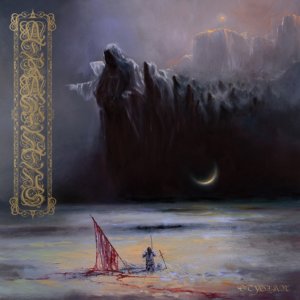 Without considering the consequences, the central character in ‘Stygian’ – The Guardian of Atros Kairn – seizes the mythical sword of Atra Eas from the sun-goddess, Heeos. Possession of the sword earns him eternal life but as a direct result of his actions, the sun dies and thus begins the inevitable process of the death of the planet. Karma. One of the morals to this story could be that we should be careful what we wish for (cos we just might get it)? Humans don’t generally think things through but are instead driven by greed, lust, power and sheer thoughtless stupidity…
Without considering the consequences, the central character in ‘Stygian’ – The Guardian of Atros Kairn – seizes the mythical sword of Atra Eas from the sun-goddess, Heeos. Possession of the sword earns him eternal life but as a direct result of his actions, the sun dies and thus begins the inevitable process of the death of the planet. Karma. One of the morals to this story could be that we should be careful what we wish for (cos we just might get it)? Humans don’t generally think things through but are instead driven by greed, lust, power and sheer thoughtless stupidity…
“While we can’t really blame The Guardian of Atros Kairn for wanting to escape the natural cycle of life and its inevitable end, we also cannot blame his feeling of regret in the last song, upon realizing that it is unnatural to do so, and we can perhaps relate to his desire to end his own life to join with his deceased kin (but to no avail). By acquiring the sword of Heeos at the summit of The Aaegian, The Guardian of Atros Kairn wanted to spit in the face of the gods by attempting to become one himself and escape death. In the end, he is like all of us, and everyone has their breaking point and this realization also came to him hard by the end of this record. Keep in mind that The Guardian of Atros Kairn is after all, described as an extremely powerful and strong person, both mentally and physically. He is described as the only human being to have ever climbed The Aaegian without dying of exposure, tiredness, hunger or from suicide after gazing at the horrible ghastly entities haunting the steps of the mountain. Keep in mind also that it takes approximately two to three years to climb the mountain at a steady pace, too. At the end of his quest, he would retrieve his prize, the sword of Heeos, through a deceitful pact with the lesser gods Carcophanex and Sharos, unknowingly bringing doom, death and endless sunless winter upon the Perpetual Planes. The sword represents the sun-goddess’ immortal essence and so as it fell into mortal hands, Sharos and Carcophanex would unleash the Black Winds of Atramentus upon the earth and devour the remains of Heeos’ essence. By the end of the album, The Guardian of Atros Kairn, the once mightiest human being on The Perpetual Planes, both spiritually / emotionally and physically, reaches his breaking point. Completely broken, he falls into endless dread, misery and sorrow upon the sight of what his actions have caused after realizing how agonizing eternity truly is. Everyone has a breaking point. Everyone suffers. Everyone experiences regret, loss, fear and pain. We must eventually accept that nothing is meant to last forever, as much as it terrifies us to our core and wounds us deep within our souls. The Guardian Of Atros Kairn was so terrified of this thought, that he chose to spit in the face of fate and the gods and did not realize the consequences. A brave and bold move, if not egoistical and short-sighted but at what cost? Ask yourself, will you find the strength to move forward and live your life fully despite having the knowledge that all must end one day, or will you choose to see yourself decay from the inside as you crutch to something that is unattainable?”
Eternal life turns out to be the ultimate curse as the protagonist witnesses the death of everyone and everything and spends his time alone in pain, crossing the icy plains filled with sadness, battered and shredded by devastating winds. A cruel fate but one which mirrors the existence and passing of every man and woman – any of us who live long enough will surely be subjected to unimaginable loss, suffering and disappointment? Life is a blessing but it is also a curse due to the inevitability of death – not particularly our own deaths but more so those of our loved ones? Why would anyone desire a lifetime of this existence never mind an eternity of it?
“I am often conflicted within myself when it comes to such topics because they are not easy to discuss. As sad at it is, a part of me believes that things such as loss, suffering and heartache are a natural part of life. I don’t think life is necessarily a curse because of the pain we feel during its course. A part of me understands the desire to escape this. But another part of me believes the pain inflicted on us, while unbearably harsh at times, can be often nothing but a test from fate or god, and it is up to us to fight it and pass on what we have learned and accomplished to inspire others. Maybe I’m wrong. Maybe there is no god and we are just another mammal with an overdeveloped brain that renders us delusional in believing that we possess a soul and a consciousness and that we shouldn’t overthink all of this. I don’t know, man, I’m just some guy in some metal bands. I don’t hold the truth. With that said, it obviously isn’t as simple as that and life is definitely not this black and white. The environment, system and climate in which the less privileged and fortunate are raised can be innately cruel and biased against them and I definitely don’t think people who choose to run away from this, to rebel against it, or even end it all are weaklings or cowards. On the contrary. Anyway, who are we to decide this? Who decides who should be less equal than others? If anything the only cowards are NOT those who choose to give up, but rather those who are afraid to admit that they have thought about ending it to escape such terrifying events, because they want to project an image of toughness and indifference. However, The Guardian of Atros Kairn was not a coward in wanting to escape death through immortality despite how controversial and egoistical his actions were. He simply did not have the foresight and the ability to perceive what eternal life would entail and how things would turn out to be in his own rebellion against life and the gods who deceived him. It is a bit different when seen through this angle.”
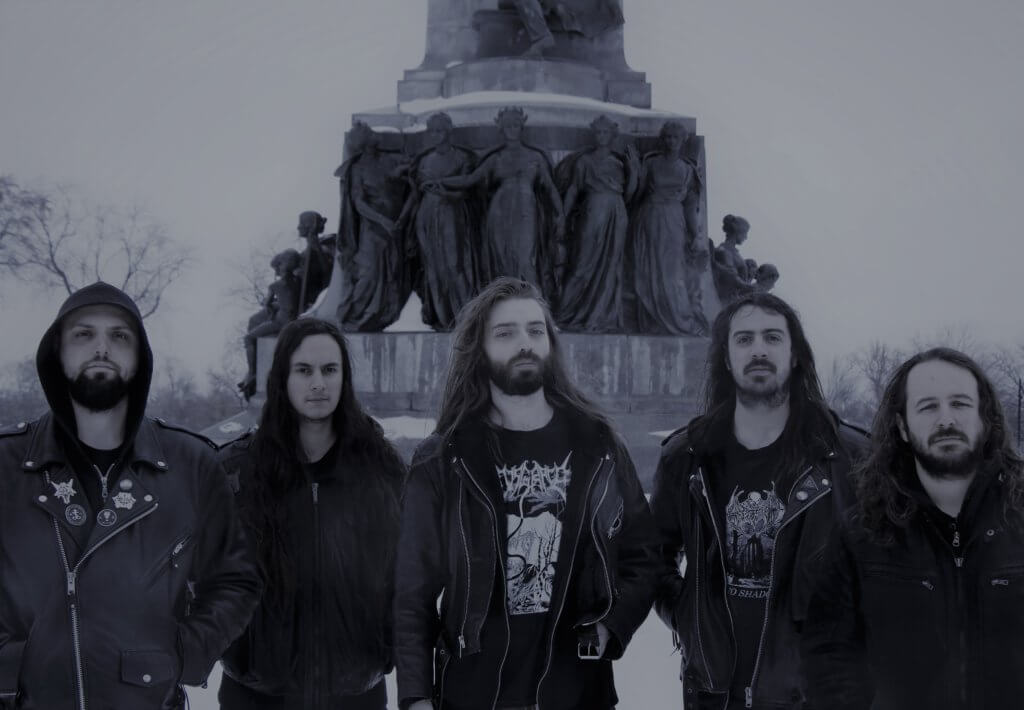 Whilst delving into the concept behind ‘Stygian’ and the central character, it occurred to me that the timing of this release is poignant. The hapless, irredeemable situation he finds himself in could be applied to how we are all feeling right now as we endure the end of life as we once knew it. I feel like I am akin to The Guardian of Atros Kairn, witnessing the slow death of the sane, normal world as it is replaced with something different – some sort of Orwellian purgatory. The old ways are like the frozen, barren landscape observed by your protagonist. With the end of the social norms humans enjoyed, it feels like we are being stripped of the very things that made us human. Regardless of what anyone’s take on this virus is, would you agree that these are bleak and depressing times for the human race, even worse than before?
Whilst delving into the concept behind ‘Stygian’ and the central character, it occurred to me that the timing of this release is poignant. The hapless, irredeemable situation he finds himself in could be applied to how we are all feeling right now as we endure the end of life as we once knew it. I feel like I am akin to The Guardian of Atros Kairn, witnessing the slow death of the sane, normal world as it is replaced with something different – some sort of Orwellian purgatory. The old ways are like the frozen, barren landscape observed by your protagonist. With the end of the social norms humans enjoyed, it feels like we are being stripped of the very things that made us human. Regardless of what anyone’s take on this virus is, would you agree that these are bleak and depressing times for the human race, even worse than before?
“I really wish the timing of this release had been different, but fate and timing has decided it would be so. It must also explain why the album and its concept seems to have really struck a nerve with so many people, because everyone is in the same boat right now in one way or another, and many can interpret the message of the album in many different ways and project themselves into it. Many have experienced loss and debilitating loneliness in these past months after all. I think these are certainly bleak and depressing times, but we shouldn’t believe everything will get better the minute the clock strikes twelve on the first of January. Makes me wonder if people in 1929 or 1941 thought things would get better the next year – definitely didn’t! Call this pessimism if you will but this virus is a massive issue amongst many others just as debilitating – social injustice, repression, authoritarianism and fascism, inequality, global warming, unstoppable forest fires, famine, human trafficking, capitalism-driven wars, the list goes on. Perhaps many see this album as a soundtrack to the beginning of the end, metaphorically speaking. It definitely will only get worse, but this does not mean we shouldn’t attempt to better ourselves and help others.”
Between the virus itself and the measures being rolled out to allegedly try to suppress it, our lives have been turned on their heads. From a musical perspective, what impact has the whole nightmare had on you? Has it afforded you extra time (and motivation) to work on various projects? The indefinite cessation of live concerts is a real concern – are you optimistic that gigs might become somehow viable again sometime in the not-too-distant future?
“The album and its production was mostly all done by the time the pandemic struck, save for the mastering. All of this free time did help me fine-tune the presentation of the lyrics and the lore within our album. I also wrote and recorded a lot of new music for First Fragment and Eternity’s End during this time. I released my own website at philtougas.ca. I started doing graphic design. I started getting in shape again. I recorded guest solos to get revenue. I also joined a new band I’m excited to announce in the next few months. It felt really bad to postpone the Chthe’ilist tour and this huge tour I was supposed to do starting late September but at least I remained productive. I am also optimistic about shows in Europe and Asia being possible in 2021 (European and Asian Funebrarum fans, be on the look-out!). I don’t think shows in Canada and the US will be possible in 2021, however, mostly because of the surge of anti-maskers who are contributing to the spread of the virus and the awful political climate currently reigning.”
Obviously nobody will ever physically experience the trauma the unfortunate Guardian of Atros Kairn lives through. However, it strikes me that the story of an individual cut off from the world and filled with desolation, dread and pain could possibly reflect the experience of somebody who suffers from conditions such as depression or dissociative disorders. Is the overall tale an allegory for these kinds of emotions at all? Either way, Funeral Doom is a catharsis coming from a very dark place…
“Many people who have listened to the album seem to have experienced different contrasting emotions. Some felt fear. Some felt sorrow. Some felt cold. Some felt crushed. Some didn’t feel anything at all – either they experienced true emptiness or they simply were not moved by the album at all. Can’t please everyone! Overall, I think the strength of this album is its ability to make people relate to it in various ways and face their own fears and traumas. I also think the strength of this concept is the fact that it is easier to identify with the Guardian of Atros Kairn, a nameless character, as very little background information on him is provided in the story preface. I’ve already talked about this character in the previous paragraph, but I can elaborate more (READERS: STOP READING HERE IF YOU PREFER KNOWING LESS – FOR PROJECTION / IMMERSION PURPOSES). The Guardian of Atros Kairn is the last son of the house of Atros, keeper and guardian of the now near-inhabited impregnable Kairn Fortress on the outskirts of Fortunex where he grew up and its seemingly boundless subterranean vaults and the last surviving member of an ancient warrior-clan lineage with extremely distant generational ties to Armon’Sul and The Armonian Guard (See also: Eternity’s End). His motivations to remain immortal, canonically-speaking, could be many others than what I’ve already talked about previously, depending on how you choose to interpret it: the desire to ensure that the name of his ancient lineage lives on and endures through the aeons, or a desire to escape death and pain and rebel against the gods like I talked about. Many still relate to this despite the fantasy-driven lore, because we all wish to never be forgotten through the sands of time, and we all fear death despite our inability to comprehend eternity and what eternal life would entail. The other emotions this character feels throughout the story are all things I have gone through myself, like many others, and are expressed metaphorically. Whether it is unbearably cold temperatures, seasonal depression, intense dread experienced in sleep paralysis episodes, terrifying encounters with unexplainable paranormal occurrences, loneliness and loss or intense regret and heartache. The Guardian of Atros Kairn is very much human like us after all.”
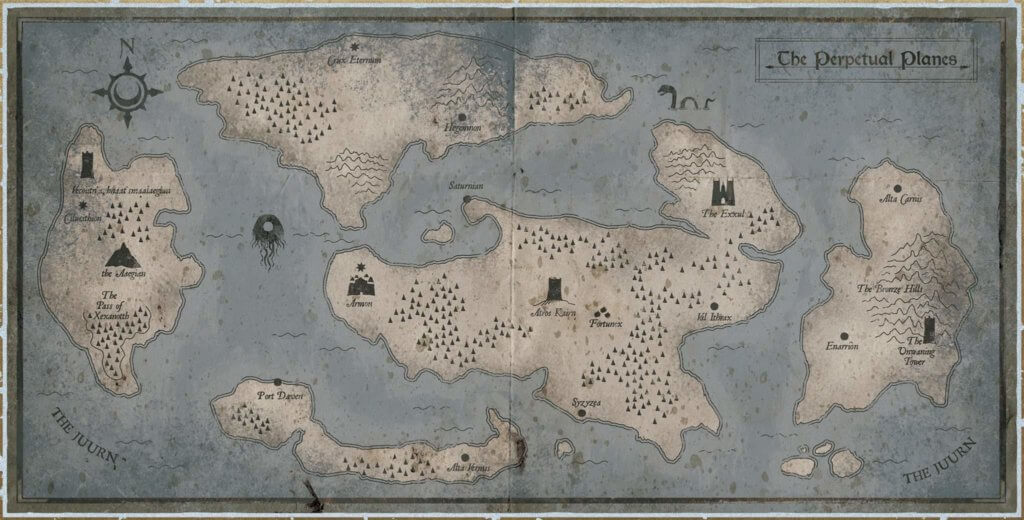 ‘Stygian’ does not take place on our Earth but in a separate world, which you have created and wherein the music of Chthe’ilist is also staged over various eras. Almost Tolkien-like, you have invented lands and continents and characters and a whole history. It’s rather remarkable and unique within the extreme music world as far as I’m aware. Why have to adopted this approach and where do you draw your inspiration from? Do you find what’s going on in the real world too mundane or disgusting to write about? Also, are these creations solely for musical use or would you like to expand it all into a novel some day?
‘Stygian’ does not take place on our Earth but in a separate world, which you have created and wherein the music of Chthe’ilist is also staged over various eras. Almost Tolkien-like, you have invented lands and continents and characters and a whole history. It’s rather remarkable and unique within the extreme music world as far as I’m aware. Why have to adopted this approach and where do you draw your inspiration from? Do you find what’s going on in the real world too mundane or disgusting to write about? Also, are these creations solely for musical use or would you like to expand it all into a novel some day?
“It technically does take place on planet earth as it bears so many resemblances, but rather an alternate version of it, with a different geological composition and alternate fauna / flora. The lore behind Eternity’s End (which is also related to Atramentus just as much as Chthe’ilist) does prove this. I think the real world is definitely worth writing about, whether it’s about personal experiences, memories or the horrors of our current reality. I say this too because those are after all my main inspirations, except they’re described metaphorically and the imagery I use to convey these is influenced from media I have enjoyed in my life (books, religious writings, movies, games, you name it). I’ve already mentioned how much Greek mythology and Christian eschatology / theology influenced the story of ‘Stygian’ but many video games, movies and books continue to feed my subconscious with new ideas daily. Anyone who say bands should not draw influence from the media they consumed should honestly shut the fuck up forever. It’s like saying Iron Maiden’s music is less valid because they based some of their lyrics on books and movies (side note: video games are just as valid as these). We wouldn’t have masterpieces like ‘Where Eagles Dare’ or ‘Stranger In A Strange Land’ otherwise. Fuck outta here with that poser shit. In the case of Atramentus, Chthe’ilist and Eternity’s End, I have created an alternate reality to link these bands together through common recurring underlying themes and I am building this world one band at the time. The more bands I create, the bigger and more expensive this lore will become. Some of these upcoming new bands may not all relate to this lore depending on the aesthetic and lyrical direction chosen at the time, but the ones that do will of course represent an extension of this world through a different lens every time, as each band is meant to play a different style of music and therefore convey different emotions. Eternity’s End offers a hugely contrasting perspective to this world and as much as some of the underlying themes that tie these bands together are present, the music of the band carries a much more empowering, unifying and positive overall message through tales of cosmic warfare and sci-fi meets dark fantasy mysticism. In contrast, Chthe’ilist is pure terror and stands for all things slimy, inhuman, incomprehensible, disgusting and depraved, with a further emphasis on medieval horror, nightmares and the fear of ancient gods – something I want to fully flesh out on the next records. Definitely could see myself doing a novel about it all one day, but I think it would probably be short stories as opposed to one continuous saga.”
Speaking of Chthe’ilist, I believe ‘Stygian’ is a companion piece to the forthcoming second full-length. What can you tell me about the much-anticipated follow-up to ‘Le Dernier Crépuscule’? Is the album almost ready for release?
“Sadly, the upcoming Chthe’ilist record is still in its earliest stages when it comes to the composition. What I can tell you is that the story will be set in the same world, but it won’t be a direct sequel or a direct prequel to the Atramentus album. In fact, the events I will be talking about on this album are not set in the same timeline in which the story in ‘Stygian’ takes place. The Perpetual Planes is after all a vast world that has undergone many eras and many extinctions. Gone will be the overt references to other media and other lores too. Like I said just above, I think it’s great that bands choose to do this as it is nothing new. But here’s the thing: five out of seven songs on ‘Le Dernier Crépuscule’ were canon with my lore but looking back, it should have been all of them and this is purely for consistency’s sake. There will be no ‘Tales Of The Majora Mythos Part 2’ or anything of the likes. This new Chthe’ilist album will be a horrific yet epic voyage into the darkest corners of a deranged mind whose lucid dreams and nightmares are able to shape the decaying environment around him. The music will be quite eclectic too. Even moreso than on ‘Le Dernier Crépuscule’. Our bass player Antoine told me that when he heard the latest song I wrote for the record, it reminded him of Allan Holdsworth and Shaune Kelley of Ripping Corpse if both played Death-Doom on a bad LSD trip and Finnish / Swedish Death Metal. It still has that familiar sound but the mix of influences makes it sound like no one else and obviously this can’t be said about ‘Le Dernier Crépuscule’ because we did wear our influences on our sleeves. Long story short, it will crush, outperform and outshred everyone who tried to pigeonhole Chthe’ilist in one way or another.”
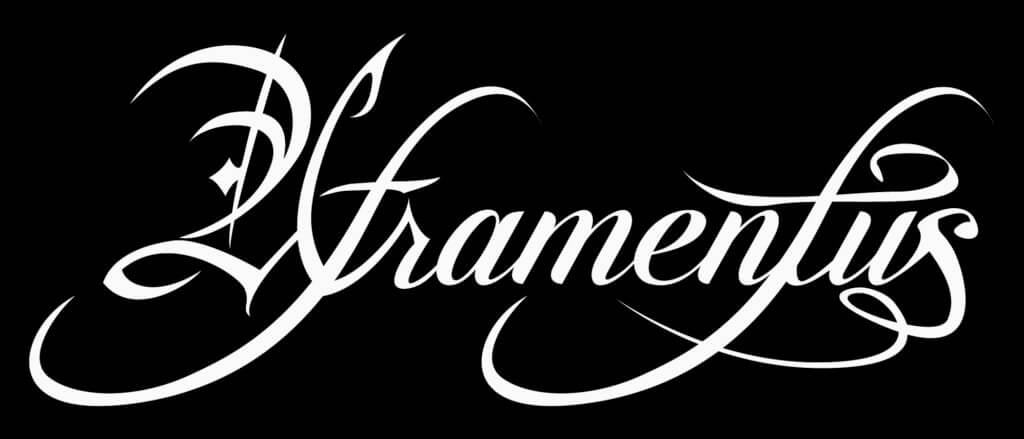 How big an honour was it for you to have the Atramentus album mastered by Greg Chandler from Esoteric? I’m assuming his music has been a huge source of inspiration to you over the years? Was there much dialogue back and forth as to how you wanted the finished product to be sonically or was it a case of letting him weave his magic?
How big an honour was it for you to have the Atramentus album mastered by Greg Chandler from Esoteric? I’m assuming his music has been a huge source of inspiration to you over the years? Was there much dialogue back and forth as to how you wanted the finished product to be sonically or was it a case of letting him weave his magic?
Ah man, Greg is awesome. Wasn’t my first time working with him and he’s always easy to communicate and deal with. He mixed the Chthe’ilist album in 2015 and it made sense to work with him again, this time in the genre he is most known for. It also goes without saying that we are huge fans. In fact, Esoteric were one of the first bands that got me into Funeral Doom in the first place, so it made sense we had to work with him. Greg’s guidance and touch definitely made the album more powerful. But, with that said, the sound of Atramentus comes from us as we self-produced it. It all stems from the vision I had with the material ever since I wrote the music so long ago and we made sure the sound on this record stayed true to what I had envisioned back then. I provided clear points of reference for the sound, effects and aesthetics and Xavier Berthiaume, our drummer, was perfectly able to capture and bring this vision to life thanks to his abilities and his inhuman patience as I guided him through it all. I am glad he was also able to leave his touch in the mix because it’s all about team-work. Much like how François and I did a lot of team-work in finding all the right synth / organ / piano sounds for each section as each section of the songs is supposed to represent a different emotion or colour. I think the mix wouldn’t have been so strong without all of their ideas or Claude and Antoine’s knowledge of gear and pedals. Greg’s involvement was still very crucial for two reasons, though. One, because he gave this album an additional punch, and even more depth and, two, because his advice made Xavier reconsider a few minor aspects he overlooked in the first version of the final mix. Doing so ensured we’d have the strongest mix possible on our side of things with our current resources at the time right before Greg handled the mastering. Like I said: team-work is key.”
